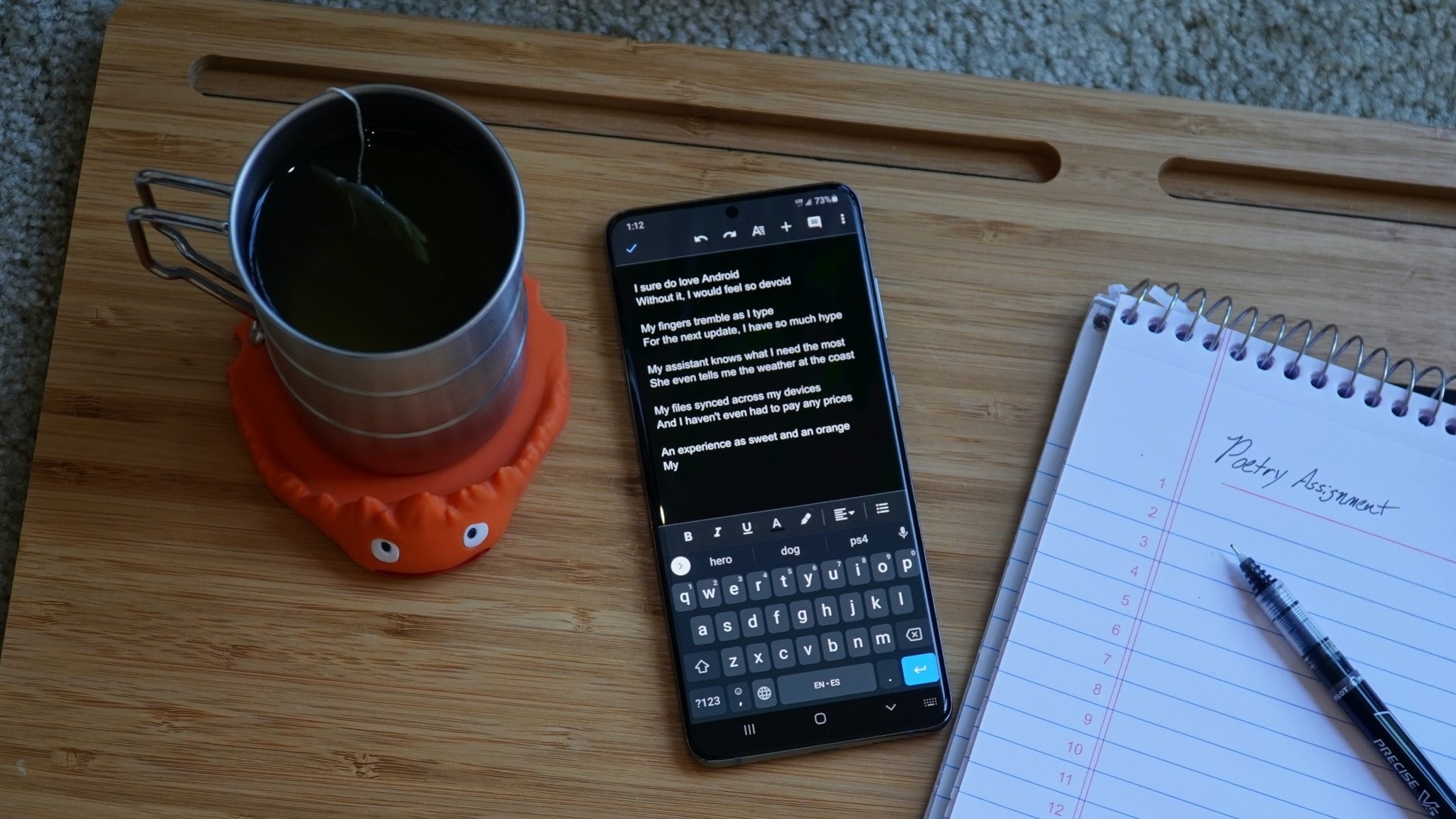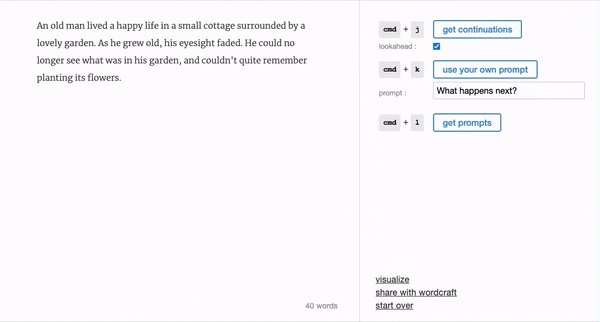Google opens up a world of Wordcraft, using AI inspiration for writers
Could this help me with my unfinished novel?

Get the latest news from Android Central, your trusted companion in the world of Android
You are now subscribed
Your newsletter sign-up was successful
What you need to know
- Google speaks on its writer's workshop with its AI-powered co-writing tool, Wordcraft.
- 13 writers experimented with Wordcraft for eight weeks before offering feedback.
- Wordcraft assists creative writers by offering its own take on finishing a thought, or it can even rewrite a sentence for you.
- The program also struggles with maintaining a writing style and narrative voice.
Google tests its AI co-writing tool Wordcraft with professional writers to gather authentic feedback.
Google explains the Wordcraft Writers Workshop on its website, detailing how 13 writers tested the AI software tool for eight weeks at Google People + AI Research (PAIR). Wordcraft is an AI writing helper powered by Google's advanced language models, LaMDA, which helps nudge you along in your writing and can even write things for you when the fog sets in.
As you're writing, the LaMDA-powered Wordcraft is working behind the scenes to offer suggestions whenever you need them, like "rewrite this phrase." When selected, the program will offer suggestions on how they could rewrite a piece of text. Think of it as a superpowered Grammarly. Users can also get more descriptive by saying they want something that is funnier, and the app will try and perform that task for them if they're struggling.
According to Google, the writer's in the workshop enjoyed how open-ended Wordcraft is, in the sense that they could simply toss in a single bit of "seed text" (an idea), and the tool would generate some pretty wild story ideas to possibly work off.

Writers can also ask Wordcraft to rewrite, elaborate, or continue what they were already writing. For those looking to brainstorm, Wordcraft has a feature called "freeform prompting," in which a user can ask the app to perform a simple task like describing an object for them or asking it to finish a thought for them like, "why was X doing Y?"
While Wordcraft may seem like this magical tool of thought, a way of smashing through writer's block, it's not entirely perfect. As the writers in the workshop concluded the testing, they all agreed on a similar fact: Wordcraft's AI struggles to maintain a specific writing style and narrative voice.
A typical scenario you'd tend to avoid in writing is using clichés which Wordcraft seems to lean toward too often. There's also the issue of the AI hallucinating at times which makes it create pieces to add to a story that simply makes no sense at all. Google explains this is because, unlike humans, AI programs simply don't know the world around them and how things (ideally) work.
Get the latest news from Android Central, your trusted companion in the world of Android
As Google explains, it's also struggling with its design of accepting input and running with it. The model lacks "distinctive and consistent opinions and style." Through testing, a writer also encountered that Wordcraft finds it hard to generate a scenario where someone is committing a mean or hurtful act.
By the end of the testing period, Google found that all writers agreed that Wordcraft wouldn't replace writers anytime soon (phew!). There are also some questions being raised about the implications a model like Wordcraft could have in the world of creative writing, especially for newcomers to the craft.

Nickolas is always excited about tech and getting his hands on it. Writing for him can vary from delivering the latest tech story to scribbling in his journal. When Nickolas isn't hitting a story, he's often grinding away at a game or chilling with a book in his hand.
